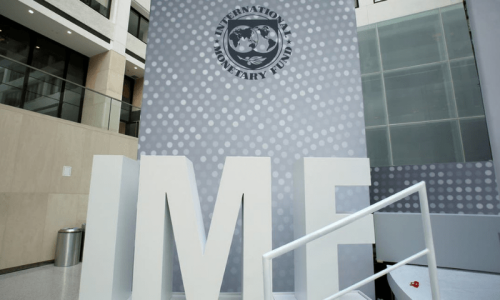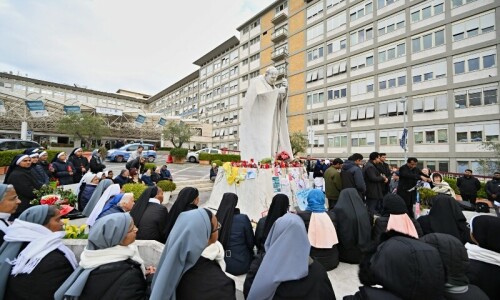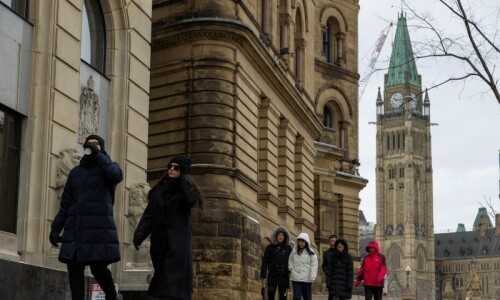DHAKA: A Bangladesh court Monday delayed its verdict against a group of militants accused of carrying out a 2001 bomb attack on the main Bengali New Year celebrations which killed 10 people.
Nine of the 14 accused were in the dock amid tight security at the court in the capital Dhaka when Judge Ruhul Amin announced he would now hand down his verdict next Monday, June 23, saying he “needed more time”.
Prosecutors accuse the militants, including the head of the outlawed Harkat-ul-Jihad al Islami (HuJI) outfit, of targeting the popular secular celebrations in Dhaka's main park which they deemed offensive to Islam.
However, defence lawyers say the accused only admitted to the attacks after confessions were forced them during police interrogation.
The bombings were allegedly among a series carried out by HuJI head Mufti Abdul Hannan and his group, who also attempted to kill Prime Minister Sheikh Hasina when she was opposition leader in 2004.
After eight years of investigation and another five years of protracted trial, the lower court last month set the case for verdict for June 16 with prosecutors seeking death penalty for each of the 14 accused.
“We hope the court will sentence them to death,” prosecutor S.M. Zahid Hossain said ahead of Monday's hearing.
“The court must send a message that this kind of heinous act won't be tolerated in the country,” Hossain added.
Five of the accused are still at large and are believed to have fled abroad. Of the remainder, Hannan and two others have confessed their involvement in the plot in statements made to magistrates.
Hannan has already been sentenced to death for a 2004 grenade attack targeting the British High Commission in the northeastern city of Sylhet that killed three people.
The Bengali New Year, celebrated on April 14, is the most important secular festival for the 155 million ethnic Bengalis in Muslim-majority Bangladesh.
Hundreds of thousands of people, including Muslims, traditionally gather and sing under a Banyan tree in the capital's historic Ramna Park and the nearby grounds of Dhaka University.
Hossain said the militants targeted the celebration because they considered it “un-Islamic and against Sharia” law, and viewed the traditional singing and dancing performed as “obscene”.
They also wanted to undermine the secular government of then-prime minister Hasina, who later that year lost elections to her main rival Khaleda Zia, he said.
Police also accuse the group of trying to blow up courts and other secular institutions, as well as Sufi shrines and a church.
Hannan, who fought with the Taliban in the 1990s, was arrested in 2005 after the government banned the HuJI comprising of Afghan-trained militants, following other deadly bomb attacks.
Defence lawyers said some of their clients were charged based on disputed confessions.
“My clients are only named in the case because Mufti Hannan mentioned their names in his confessional statements,” defence lawyer Idi Amin told AFP.
“But he himself later retracted his confessional statement, saying it was taken by coercion. “















































